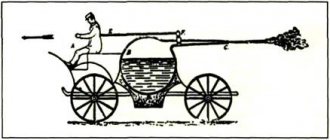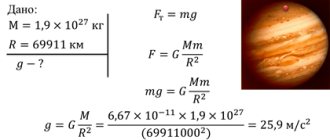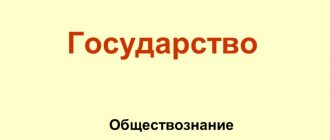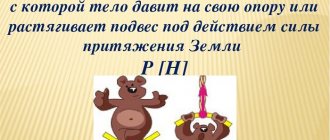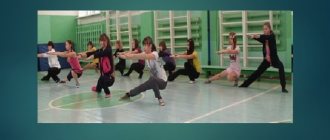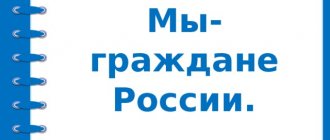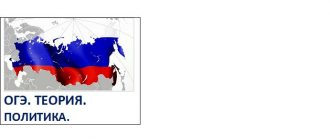Lesson summary on the topic “Education”, 8th grade
Lesson summary No.
Subject: ____________________ Class:_______ Date___________
Topic:Education
Goals and objectives:
characterize the essence and role of education in the life of society; determine why lifelong learning is a key objective of society.
Planned results:
subject:
determine the reasons for the growing importance of education in the information society; explore the relationship between a country's competitiveness and education; describe the basic qualities of a person that meet the needs of the information society; characterize the main levels of education in modern Russia;
meta-subject UUD
— I)
communicative:
perceive the text taking into account the assigned educational task, find in the text the information necessary to solve it; organize educational cooperation and joint activities with the teacher and peers; formulate, argue and defend your opinion;
- regulatory:
independently discover and formulate an educational problem; search and highlight the necessary information; plan ways to achieve educational goals; evaluate the correctness of solving a learning task; determine the sequence of intermediate goals taking into account the final result;
- educational:
collect and record information, highlighting the main and secondary;
apply basic research skills when solving search problems; solve creative problems; present the results of their activities in the form of an oral report, participation in a discussion, conversation; personal learning achievements:
formation and development of learning motivation, readiness and ability for education and self-education; attitude to lifelong education as a condition for successful professional and social activities.
Equipment:
textbook, package with working material for group work, projector, multimedia presentation.
Lesson type:
lesson of discovering new knowledge.
During the classes
Organizing time
Updating of reference knowledge
Let's check how well you have mastered the material you have studied.
- The Declaration of the Rights of Man and Citizen interprets it as the ability to “do whatever does not cause harm to another: thus, the exercise of the natural rights of every person
- Introduction to new material
The German philosopher Jaspers wrote: “A person who grew up outside of tradition is dumb, helpless and lacks knowledge. Deaf and mute people, deprived of one of the channels through which the psyche perceives influences from the outside, will remain at the level of idiocy if they are not taught language using special methods. On the other hand, thanks to proper training, they can grow into fully developed people. Learning, imitation and environment are the factors that make us soulful beings, that is, simply put, human beings.”
Is the philosopher right? Is learning (education) really one of the factors in the development of an individual? We will discuss these and other questions with you in our lesson.
Lesson topic: “Education.”
- What do you think we will talk about?
- What questions do we have to answer?
(Students express their guesses.)
Lesson Plan
- Priority of education.
- The growing importance of education in the information society.
- General and vocational education in the Russian Federation.
- Continuity of education.
Problematic issues
- How important is it in the information society to be able to acquire and constantly update knowledge?
- Is it possible to acquire knowledge at school that will be enough for a lifetime?
- Work on the topic of the lesson
- What associations does the word “education” evoke in you?
(Students name associations, the teacher records them on the board. From all the words written down, the key ones are highlighted, which help students form a definition of the concept of “education.”)
Writing in a notebook
Education
- the process of acquiring knowledge about the world, familiarizing with the culture, values of the Fatherland, world civilization, as well as the process and result of mastering systematized knowledge, skills and abilities.
In the process of education occurs:
- transfer of knowledge from generation to generation;
- assimilation of the results of socio-historical knowledge reflected in the sciences of nature, society, technology and art;
- mastering labor skills and abilities.
Thus, education is a necessary condition for preparing for life and work, the main means of introducing a person to culture and mastering it; foundation for the development of culture.
- Priority of education
Each new generation masters the knowledge and experience accumulated by previous generations, and also contributes to the continuously replenished treasury of culture.
Our state has established the principle of priority of education. It's no secret that many teenagers don't consider education
an important task, reasoning approximately like this: “Why do I need Pushkin? I can live in the world just fine without him.”
Questions for discussion
- Can an uneducated person become a successful member of modern society?
- How do you understand the concept of “ignorant”?
- Do you think that a person’s education affects his professional qualities?
(A mini-discussion is held.)
We found out that in the process of education a person not only masters knowledge, skills, and the beginnings of creative activity, he thereby creates himself, becomes a true citizen of his Fatherland. It is on the basis of acquired knowledge and skills, awareness of true values that it is possible to realize one’s civil rights, freedoms and responsibilities.
Society is also interested in this, since it is through education (and upbringing as its integral part) that a person develops moral qualities and professional skills that make it possible to ensure the material and spiritual life of society. Education and intelligence are national wealth; diversified human development, the desire for creativity and the ability to solve non-standard problems are becoming the most important factor in the country’s progress.
At the present stage of development of society, education is turning towards the needs, interests and inclinations of the individual.
- Having studied the material in the “Opinions” section on p. 79 of the textbook, answer the question for it.
(Checking the completion of the task.)
- Working with paragraph 1 § 10 of the textbook, highlight government measures aimed at implementing the new concept of education.
(During the completion of tasks, a list is compiled.)
Priority of education in the Russian Federation:
- establishing state standards for secondary and higher education that reflect the latest achievements of science;
- increased funding for educational institutions;
- growth of computerization of educational organizations;
- construction of new schools, technical schools, universities;
- adoption of a number of state documents defining current and future objectives of education.
- The growing importance of education in the information society
Education is not only a fundamental human right, but also a concrete, proven benefit to society as a whole.
- Working with paragraph 2 § 10 of the textbook, determine the importance of education in social development.
(During the completion of tasks, a list is compiled.)
The role of education in the information society:
- educated citizens successfully develop the country’s economy and culture;
- educated people are more confident in achieving their life aspirations;
- a high level of education increases a country's competitiveness.
- Working with paragraph 2 § 10 of the textbook, characterize the main demands of the information society.
(Checking the completion of the task.)
- General and vocational education in the Russian Federation
The Russian education system is divided into two main areas - general and vocational education.
- Divide into two groups. Working with paragraph 3 § 10 of the textbook and Internet resources, fill out the table.
First group
identifies the main stages of general education.
Second group
defines the main stages of vocational education.
Education in the Russian Federation
| General | Professional |
|
|
(Checking the completion of the task.)
- How does secondary school help you choose your future path?
(Students’ answers. A mini-discussion is possible.)
- Continuity of education
- How do you understand the term “continuity of education”?
(Students' answers.)
Continuing education is not only learning, but also personal development in the process of education. Indeed, as professionalism grows and individuality increases in the process of choosing means for self-realization, the determining role of a person in building his life and educational strategy intensifies.
- Study and comment on the diagram.
Structure of the continuing education system
The ancient Roman orator Marcus Fabius Quintilian argued: “We unfairly complain that nature has given the ability to science to very few people and that the majority, due to their stupidity, waste their labor and time in vain. On the contrary, we will find a considerable number of people receptive and capable of learning. This lies in human nature: just as birds are given by nature to fly, horses to run, and wild animals to be ferocious, so we have received a special inheritance of reason and understanding.”
Using the test, we will check what your abilities for self-development and self-education are.
Working material
Test
- Why do your friends value you?
- I am a devoted and faithful friend
B) I am ready to stand up for my friends in difficult times
- I am an erudite and interesting conversationalist
- Which quality is more developed in you?
- determination B) hard work
- responsiveness
- How do you feel about the idea of keeping a personal diary, planning your work for the year, month, next week, day?
- I think that most often it’s a waste of time B) I tried to do it, but not regularly
- positive because I've been doing this for a long time
- What is most stopping you from studying better?
- not enough time
B) there are no suitable conditions
- willpower and perseverance are not always enough
- What are the typical reasons for your mistakes and mistakes?
- inattention
B) overestimation of one’s abilities
- I do not know for sure
- Which quality is more developed in you?
- perseverance B) perseverance
- goodwill
- Which quality is more developed in you?
- determination
B) curiosity
- justice
- Which characteristic suits you best?
A) idea generator
B) critic C) organizer
- Which quality is more developed in you?
- strength of will
B) ability to remember
- obligation
- What do you most often do in your free time?
- I do what I love, I have a hobby B) I read fiction
- I spend time with friends or family
- Which of the following areas is of educational interest to you?
- science fiction B) religion
- psychology
- Who do you need to become to achieve your maximum potential?
- athlete B) scientist
- artist
- What quality do teachers note in you?
- hard work
B) intelligence
- discipline
- Which principle resonates with you the most?
- live and enjoy life
B) one must live in order to know and be able to do more
- life is a complicated thing
- Who is closest to your ideal?
- a healthy person, strong in spirit B) a person who knows a lot and can
- independent and self-confident person
- Will you be able to achieve your goals?
- I think so B) most likely yes
- if we get lucky
- What films do you like best?
- adventure and romantic B) comedy and entertainment
- educational
- Imagine that you received a million. What purposes would you spend it on?
- travel B) education
- entertainment
Key to the test
Answers are scored as follows.
| Question | Response Scores | Question | Response Scores | |
| 1 | A - 2, B - 1, C - 3 | 10 | A-2, B-3, C - 1 | |
| 2 | A - 3, B - 2, C - 1 | 11 | A-1,B-2,C-3 | |
| 3 | A-1, B-2, C-3 | 12 | A-1, B-3, C-2 | |
| 4 | A-3, B-2, C - 1 | 13 | A-3, B-2, C - 1 | |
| 5 | A - 2, B - 3, C - 1 | 14 | A-1, B-3, C-2 | |
| 6 | A-3, B-2, C-2 | 15 | A-1, B-3, C-2 | |
| 7 | A-2, B-3, C - 1 | 16 | A-3, B-2, C - 1 | |
| 8 | A-3, B-2, C - 1 | 17 | A - 2, B - 1, C-3 | |
| 9 | A - 2, B - 3, C - 1 | 18 | A - 2, B - 3, C - 1 | |
| Total points | Level of ability for self-development and self-education | |||
| 18-25 | 1 - very low | |||
| 26-28 | 2 - low | |||
| 29-31 | 3 - below average | |||
| 32-34 | 4 - slightly below average | |||
| 35-37 | 5 - average | |||
| 38-40 | 6 - slightly above average | |||
| 41-43 | 7 - above average | |||
| 44-46 | 8 - high | |||
| 47-45 | 9 - very high | |||
Discussion of test results.)
- Summing up the lesson. Reflection
Let's check how well you have learned the new material.
- Answer the questions in the “Let’s test ourselves” section on p. 85 textbook.
- Complete tasks 1-4 of the “In the classroom and at home” section on p. 86 textbook.
I suggest you evaluate your work in class by selecting the appropriate mark.
Homework
- Read § 10 of the textbook.
- Complete task 5 of the “In the classroom and at home” section on p. 86 textbook.
- Conduct a survey of classmates and develop a project “Proposals for changing the education system in primary school.”
10
